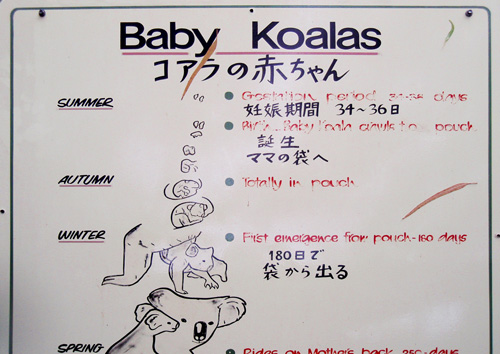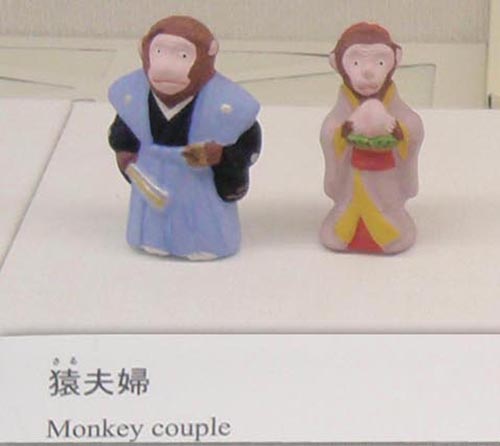38. The "Woman" Radical: 女
A Japanese teacher of mine once lamented that all the kanji containing the "woman" radical 女 had horrible meanings. The more she thought about it, the more upset she became. She wasn't exactly angry in the way an activist would be. Her tone was closer to whiny or pouty with a large dose of woundedness.
To keep her from sliding into an even deeper emotional morass, the students shifted into the role of caretakers, calling out 女 kanji with positive meanings, such as these:
始 (288: beginning)
好 (859: to like; good)
婚 (1278: marriage; wedding)
If we had known all the Joyo kanji, we might have mentioned this extremely positive one:
娯 (1238: amusement, enjoyment)
Two more can be quite positive, but not always:
妙 (1841: marvelous; strange)
妖 (2125: weird; enchanting)
Still, I don't think it would have helped to mention kanji with cheerful meanings, as our teacher was determined to feel bad. Now, what exactly was she obsessing about that day? I can't quite recall (if she ever even shared her thoughts), but the non-Joyo 姦 may have been on her mind. It can mean "noisy," "rape," and "wicked," among other things. She might also have been contemplating any of these kanji:
嫌 (1218: to dislike; aversion)
妨 (1808: to obstruct, interfere with, disturb)
嫉 (2027: jealous)
妬 (2076: jealous)
I certainly understand her annoyance; one can only assume that ancient people associated women with such negative personality traits, and the etymologies of these characters in Henshall's newer edition generally support that.
However, one can't always be too literal about such things. For instance, two kanji contain the "woman" radical but can refer to men:
婿 (1477: husband; groom; son-in-law)
奴 (1638: guy; third-person pronoun; slave)
Photo Credit: Eve Kushner
This sign issues a bold statement in large black writing:
犬のフン禁止!
Dog Poop Prohibited!
犬 (いぬ: dog); フン* (糞: feces, excrement,
in which 糞 is non-Joyo); 禁止 (きんし: prohibition)
So far there's no connection to women! For that you have to look under the image of the dog (who looks three-legged to me but is supposedly using that fourth leg to scratch his head with embarrassment):
散歩中 (さんぽちゅう: while walking)
後始末 (あとしまつ: cleaning up afterward)
That is, "If your dog does his business on a walk, let's clean up afterward, shall we?" The latter word combines 後 (after) with 始末 (cleaning up, getting rid of).
The Names of the "Woman" Radical
I've somehow neglected to introduce the basics of the three-stroke 女 radical. There aren't many, though. The English name is simply the "woman" radical. The Japanese call this radical おんな. The following kanji qualify as having an おんな radical:
女 (35: woman, female)
姿 (877: appearance)
If the radical is on the left side of a character, you could refer to it more specifically as おんなへん. That's the case with most kanji, as in these examples:
如 (1383: as; to be like; suffix expressing a state)
姓 (1471: surname)

Photo Credit: takeratta(tm)*
The Japanese poster for The Social Network, the 2010 movie about Facebook founder Mark Zuckerberg, describes him with an astounding collection of terms:
天才 (てんさい: genius)
裏切り者 (うらぎりもの: traitor)
危ない奴 (あぶないやつ: dangerous guy)
億万長者 (おくまんちょうじゃ: billionaire)
Wow, a 裏切り者 is someone who slashes (切り) you from behind (裏)!
Our radical appears in 奴 (やつ), which definitely means "guy" here, not "slave"!
First Comes Marriage ...
The 女 radical appears in a great number of kanji concerning marriage, reproduction, and female roles. You've already encountered 婚 (1278: marriage; wedding). Here are two more characters involving marriage:
姻 (1012: marriage)
嫁 (1049: wife, bride; daughter-in-law; to marry a man)
Just as 嫁 can mean "wife," so can these two kanji:
妻 (681: wife)
婦 (779: woman; wife; working woman)
Nowadays the latter one primarily means "adult woman," as in 婦人 (ふじん: woman), but it originally meant "married woman, wife." We see traces of that in the words 夫婦 (ふうふ: husband and wife; married couple) and 新婦 (しんぷ: bride).
Photo Credit: Eve Kushner
This store sells women's shoes:
婦人靴 (ふじんぐつ: women's shoes)
Crown and rabbit not included with purchase.
Reproduction and Family Roles
You know how the old rhyme goes. After marriage comes the baby carriage. We find the 女 radical in two kanji representing pregnancy:
娠 (1436: pregnancy; conception)
妊 (1676: pregnant)
After birth, the 女 radical still comes in handy in kanji such as these:
嬢 (1422: young woman; daughter; unmarried woman)
娘 (1846: daughter; young woman; girl)
You might expect to find the 女 radical in characters meaning "daughter" but not "son." That's generally correct; people tend to call sons 息子 (むすこ). However, a legitimate child or heir could be of either gender, and the kanji for that concept contains 女:
嫡 (1582: legitimate child; heir)
We also find 女 in characters for "sister":
妹 (207: younger sister)
姉 (498: elder sister)
By contrast, there's no component meaning "man" in characters for "brother," as you can see from 兄 (elder brother) and 弟 (younger brother).

Photo Credit: Eve Kushner
This sign from Australia explains the gestational development of the koala. Under the faint term "Gestation," we spot 妊娠 (にんしん: pregnancy), which provides a double dose of the "woman" radical!
Here are the other Japanese words in the sign:
赤ちゃん (あかちゃん: baby)
期間 (きかん: period)
日* (にち: days)
誕生 (たんじょう: birth)
袋 (ふくろ: pouch)
出る (でる: to come out)
Other Female Roles and Identities
We also spot 女 in various characters for "princess":
妃 (1724: nobleman's wife), a kanji that often means "princess"
姫 (1738: princess; small)
媛 (1965: princess; highly regarded woman)
Wow, three kanji can mean "princess"?! Perhaps there were three princesses, and each demanded her own character!
Our radical also sits at the bottom of a more down-to-earth character:
婆 (1684: elderly woman)
And it heads off a kanji that may not have a down-to-earth meaning at all:
媒 (1692: mediation; medium)
As you can see from the second definition, this character can mean "spiritual medium," one who communicates between those in this world and those in another. What power such a person has! This 女-powered kanji strikes me as eminently positive!

Photo Credit: Eve Kushner
A Nagoya Castle exhibit of locally made clay dolls and toys includes a monkey couple:
猿夫婦 (さるふうふ).
